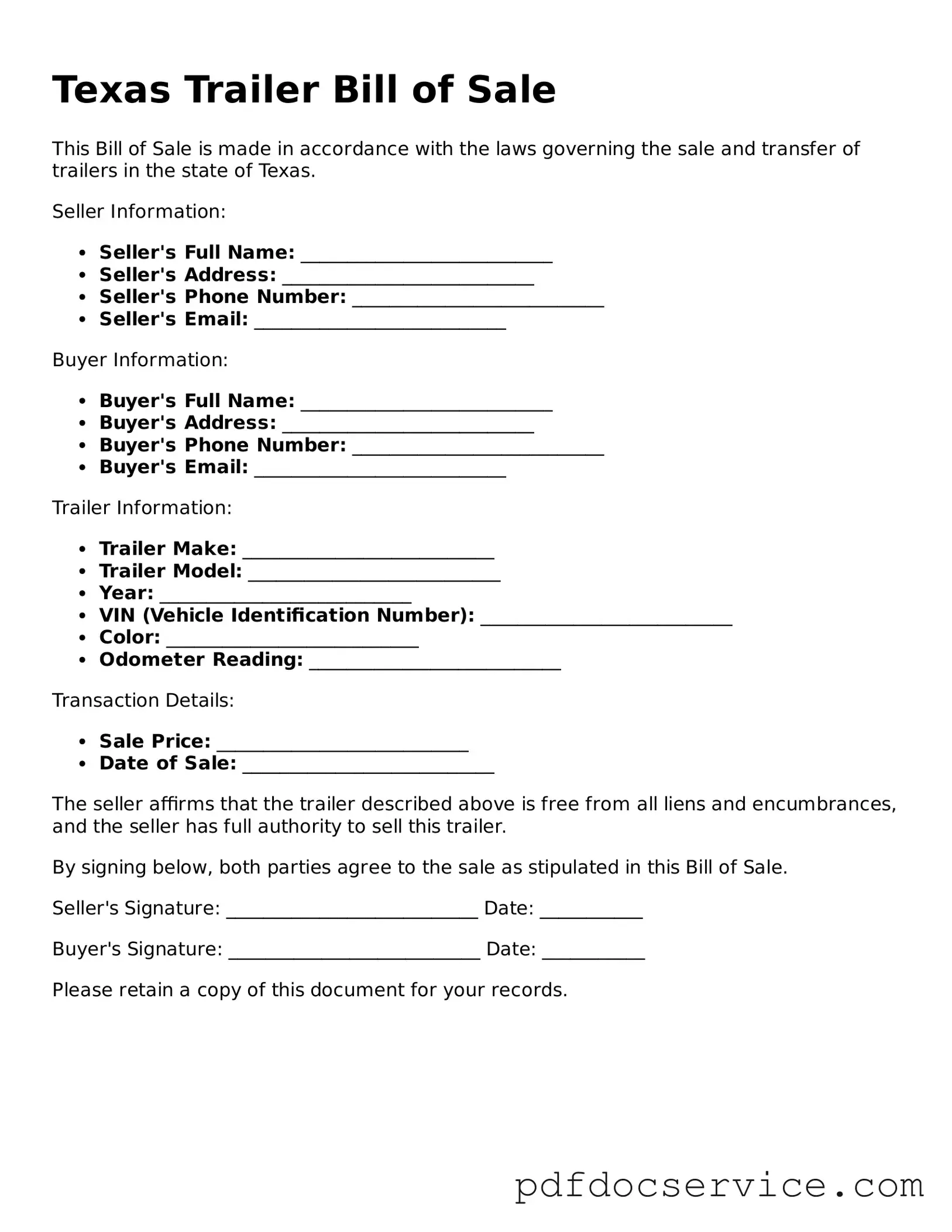Printable Trailer Bill of Sale Template for Texas
The Texas Trailer Bill of Sale is a legal document used to transfer ownership of a trailer from one party to another in the state of Texas. This form serves as proof of the transaction and includes essential details about the trailer and the parties involved. Understanding this form is crucial for ensuring a smooth and legally compliant sale process.
Open Trailer Bill of Sale Editor

Printable Trailer Bill of Sale Template for Texas
Open Trailer Bill of Sale Editor

Open Trailer Bill of Sale Editor
or
Get Trailer Bill of Sale PDF
Finish the form now and be done
Finish Trailer Bill of Sale online using simple edit, save, and download steps.